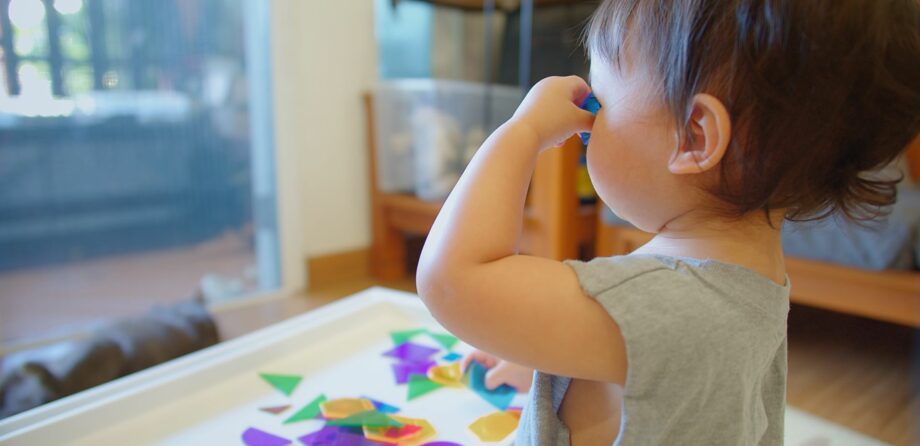
Early years activity: Shape hunt
A shape hunt helps children develop mathematical concepts, language and motor skills through playful exploration. As they find and name shapes, they build confidence, problem-solving abilities and curiosity in a fun, hands-on way.
Shape hunt learning aims
- To identify basic 2D shapes (square, circle, rectangle, triangle)
- To use the names of the shapes
- To start to understand some properties of shapes
- To extend vocabulary e.g. side, corner, triangle, circle, square, rectangle.
Resources you will need for this activity
- Shapes (square, circle, rectangle, triangle)
- Small bag/ box to put the shapes in
- Camera
- Screen to share the photos (optional).
Shape hunt activity guide
- Gather the children and talk about the different shapes available
- Taking each shape in turn, name the shape and mention their properties, e.g. 4 sides, 4 corners, etc., pointing to the relevant parts as you do so
- Ask the children if they can spot any of these shapes elsewhere in nursery, e.g. rectangle door, circle clock, etc.
- Explain to the children they are going to be shape detectives today. In small groups ask the children to come and search for some shapes both inside and outside. You could ask every group to search for all the shapes, or each group could look for one particular shape
- Encourage the children to take photos of the shapes they find
- Gather the children back together to share the photos. Children could nae and describe to their friends the shapes they found.
How to extend this activity
- Use the photos of shapes at a different time for sorting purposes and to remind the children of their learning
- Younger children would enjoy playing with shapes or using shape sorters to build their spatial awareness.
Disclaimer: Activities with children must always be risk assessed, including for allergies or choking. Children must always have adequate supervision. Resources and materials must always be appropriate for children’s age and stage of development.
- Activity
- MyNDNA
Similar Articles
Top tips: Supporting your team’s well-being
Educating and caring for young children is an incredibly rewarding role, but it can also…
Read more 
Early years activity: Frozen balloon explorers
Freezing water in balloons is an amazing sensory experience and also a great opportunity for children to discover…
Read more 

